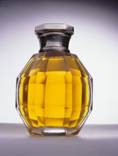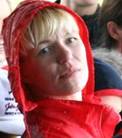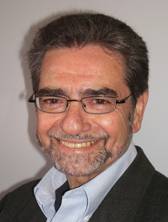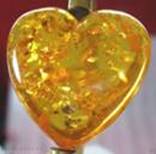
THE VOICE OF INTERNATIONAL LITHUANIA
|
VilNews has its own Google archive! Type a word in the above search box to find any article.
You can also follow us on Facebook. We have two different pages. Click to open and join.
|
Author Archive
I am saddened to see the public’s perception that rule of law is still not working effectively in Lithuania
- Posted by - (0) Comment

“It seems that some of the country's leaders simply are not ready to or interested in implementing urgently needed reforms. I am saddened to see the public’s perception that rule of law is still not working effectively in Lithuania.”
US-Lithuanian attorney Regina Narusiene in a recent interview with VilNews
To read the interview, go to
Section 11 – LITHUANIA IN THE WORLD
- Bookmark :
- Digg
- del.icio.us
- Stumbleupon
- Redit it
President Grybauskaite dismisses two judges as part of her campaign to clean up the Lithuanian judicial system
- Posted by - (0) Comment

Judge Zenonas Birstonas
The president signed today a decree removing Kaunas District Court Judge Arvydas Stankas and Vilnius District Court Judge Zenonas Birstonas from office. Both were accused of discrediting the legal system - Stankus for falsifying documents and Birstonas after he was arrested for public drunkenness. He later wrote a letter of apology to the press and the public, without impressing the president to make her change her opinion about him.
President Grybauskaite removed four other judges from office last year. According to Lithuanian law, a presidential decree is the only way to remove a judge from office.
Let’s hope rule of law soon will start functioning in Lithuania...
- Bookmark :
- Digg
- del.icio.us
- Stumbleupon
- Redit it
Definition – rule of law
- Posted by - (0) Comment
![]() That individuals, persons and government shall submit to, obey and be regulated by law, and not arbitrary action by an individual or a group of individuals.
That individuals, persons and government shall submit to, obey and be regulated by law, and not arbitrary action by an individual or a group of individuals.

- Bookmark :
- Digg
- del.icio.us
- Stumbleupon
- Redit it
A government of law and not of men
- Posted by - (1) Comment
![]() Distinguished from the 'rule of man' where, for example, in a monarchy, tyrannical or theocratic form of government, governance and rules of conduct is set and altered at the discretion of a single person, or a select group of persons.
Distinguished from the 'rule of man' where, for example, in a monarchy, tyrannical or theocratic form of government, governance and rules of conduct is set and altered at the discretion of a single person, or a select group of persons.
In a political system which adheres to the paramountcy of the rule of law, the law is supreme over the acts of the government and the people.

"The core of the ... principle is ... that all persons and authorities within the state, whether public or private, should be bound by and entitled to the benefits of laws publicly made ... and publicly administered in the courts."
- Bookmark :
- Digg
- del.icio.us
- Stumbleupon
- Redit it
The emotion I felt when I first saw the Lithuanian flag flying over Gedimino Pylis was overwhelming
- Posted by - (0) Comment
![]()

Vilnius captured my soul on my first visit in 1998. In an ideal world, I would own an apartment in old town and fly back and forth several times a year.
The emotion I felt when I first saw the Lithuanian flag flying over Gedimino Pylis was overwhelming. Lithuania is free and can grow and develop like never before. Thank you vilNews for keeping us informed and in touch!
Jurate Kutkus Burns, Florida
- Bookmark :
- Digg
- del.icio.us
- Stumbleupon
- Redit it

Photo: www.kastu.lt
Dear Aage, this is just to compliment you with VilNews new style. It's a great pleasure reading this e-magazine every time and I think you can be really proud of your achievement!
Ambassador Joep Wijnands
Royal Netherlands Embassy, Vilnius
- Bookmark :
- Digg
- del.icio.us
- Stumbleupon
- Redit it
What bothers me is the intolerance it exhibits towards Lithuanian born citizens who no longer live in Lithuania because of wars and other extenuating circumstances.
Aleksas
- Bookmark :
- Digg
- del.icio.us
- Stumbleupon
- Redit it
Tell us about YOUR Ukmergė!
- Posted by - (3) Comment
UKMERGĖ

Text: Vin Karnila
When in Lithuania you would do well to take a short drive from Kaunas or Vilnius to the city of Ukmergė. Here you will not only find an absolutely charming community but you will also be in one of the oldest communities still in existence in Lithuania.
To begin we should take a look at the name. The city took its original name Vilkmergė from the Vilkmergėlė River which was initially called Vilkmergė and assumed a diminutive form after the growth of the settlement. It is commonly thought that the name may be translated as "she-wolf", from the combination of Vilkas (wolf) and Merga (maiden). According to local legend, Vilkmergė was a girl raised by wolves, who bridged the divide between animals and humans, in the same way as Rudyard Kipling's Mowgli. "Ukmergė", by contrast, is "farm girl" (Lith. ūkis = farm). The original name has been adopted by the local soccer team, "Vilkmergė" as well as the popular HBH Vilkmergė beer.

Ukmergė girl and wolf
To put Ukmergės historical significance in the proper perspective I would like to share with you this comparison of three other locations that represent historical Lithuania
Ukmergė was first mentioned as a settlement in 1333.
Kernavė, the "ancient capital" of Lithuania, was first mentioned in 1279.
Vilnius was first mentioned in written sources in 1323
The name of Trakai was first mentioned in Teutonic Knights chronicles in 1337
In the 1300s Ukmergė was essentially a wooden fortress that stood on a hill, near the confluence of the Vilkmergė River and the Šventoji River. Ukmergė was repeatedly attacked by the Teutonic Knights and the Livonian Order in 1333, 1365, 1378, 1386. Finally during the last attack in 1391 Ukmergė was burned to the ground and had to be completely rebuilt.

A hill fort in Ukmergė's old town
The region began to adopt Christianity, along with the rest of Lithuania, in 1386. In the following year, 1387, its first Catholic church, St. Peter and St. Paul, was built. It should be emphasized that this was one of the first Roman Catholic churches established in Lithuania.

St. Peter and St. Paul Church
1 September 1435 the Battle of Pabaiskas was fought near Ukmergė. This was a very significant battle in Lithuanian history in that it reduced the power of the Livonian Order as its army was defeated, Grand Master killed, and many senior officers taken prisoners. The damage to the Livonian Order caused by the battle is often compared to the consequences that the Battle of Grunwald (1410) had on the Teutonic Knights. Some time after the battle the town was granted municipal rights and written sources dating from 1486 referred to it as a city. King Sigismund the Old confirmed these rights. During the times of the Polish–Lithuanian Commonwealth, the city had been the center of "powiat" (county government) in the Vilnius Voivodeship (province/state).
In 1655, the Swedish and Russian armies plundered the city. Because of these incessant wars, the growth of Ukmergė suffered many setbacks. In the years 1711–1712, the bubonic plague swept through the town and wreaked havoc upon its population. In 1792, by the initiative of the city's representative in the Great Sejm, Jozef Dominik Kossakowski and King Stanisław August Poniatowski renewed the town's municipal rights and gave it its current coat of arms.

Coat of Arms of Ukmergė
In the 1700s and 1800s the town and the area once again was effected by outside sources. In 1795, Ukmergė along, with most of Lithuania, was annexed by Russia, becoming a part of the Vilna Governorate (created after the Third Partition of the Polish-Lithuanian Commonwealth in 1795).
In 1812, the Battle of Deltuva, between the Russian and French armies, occurred not far from Ukmergė and Napoleon's army raided the town during the French invasion of Russia. During the November Uprising against the Russian Empire in 1831, the city remained in the hands of rebel elements for several months.
In 1843, by order of tsar Nicholas I, the town became a part of the newly established Kovno Governorate. In 1863, the city participated in the January Uprising against Russia. The uprising began as a spontaneous protest by young Lithuanians and Poles against conscription into the Imperial Russian Army, and was soon joined by high-ranking Polish-Lithuanian officers and various politicians.
Here are a few interesting events that happened in the late 1800s
In 1874 the future president of Lithuania, Antanas Smetona, was born in Užulėnis near Ukmergė, and was educated in the local school.
In 1876 a match factory was established in Ukmergė.
In 1877 a fire again ravaged the town – We can't find any documentation indicating the fire was caused by the match factory but it is a very strange coincidence don't you think?
In 1882 a printing-house was opened.
In 1899 thirteen people were punished for distributing books written in the Lithuanian language, which was prohibited at that time by Russia.
The 20th century brought a myriad of events
One very notable event occurred in 1918 after Lithuania declared its independence, the city's name was changed from Vilkmergė to Ukmergė.
In 1919 Bolshevik forces occupied the city during the Lithuanian–Soviet War, but it was soon liberated by the Lithuanian army led by Jonas Variakojis. Over five hundred Bolshevik prisoners were taken during the "Battle of Ukmergė".
Soviet POWs
In 1918 an iron foundry was established.
In 1920, the Lithuanian army stopped Polish incursions into the rest of the country, after a series of battles that were waged to establish borders between the two newly re-established countries.
Also in 1920 an electric plant, a printing house and 120 other small businesses were opened.
The city had five newspapers until 1939.
In 1930 a monument named "Lituania Restituta" was erected to commemorate the first decade of restored Lithuanian independence.

Ukmergė's monument to independence, "Lituania Restituta"
In 1940, after the Soviet occupation of Lithuania, deportations of people from the town began. When the Germans attacked the Soviet Union and its occupied territories, on June 22, 1941, the retreating Soviets gave instructions to their operatives to kill some one hundred and twenty prisoners. Fortunately most of them escaped. Tragically eight of them were tortured to death.
During the German occupation, the Nazis rounded up and murdered about 10,000 members of the town's Jewish population. During World War II, the city center suffered from extensive bomb damage.
For many years after the return of the Soviets, the city's people organized and participated in resistance movements, the deportation of the city's population to Siberia continued and in 1950 the monument to Lithuania's Independence was destroyed. The city reconstructed it in 1990, even before the restoration of Lithuania's independence was declared.
Ukmergė became an unwilling factor in the Cold War when in 1964, two coupled Soviet nuclear missile bases were built in the woods near Ukmergė. Each had four surface launch pads, semi-underground hangars to store the missiles and several accessory buildings. The bases were mentioned in the 1987 Intermediate-Range Nuclear Forces Treaty between the United States and the Soviet Union. Today while they both are in ruined state they are freely accessible to public.
As I said before, Ukmergė is a very charming community. A walk through the center of town will reward you with an opportunity to see many old buildings. While many have been restored there still are some that are in need of restoration. This is no problem though because with a slight squint of the eyes and a little imagination these buildings will appear in their original grandeur. If you visit during the summer months the town center is aglow with blooming flowers and a stroll down the streets on a warm summer's eve is quite enjoyable.

Town center at night
As you drive into the center of Ukmergė you get quite an interesting contrast. In one area you see a new shopping center, you drive by a hospital and a municiple building then you are driving through areas where many older homes are located. Atesting to their age, many of these homes are located only about one meter from the street.


To really get an idea of the history of this area you should make it a point to visit the Ukmergė Museum at 5 Kestucio Square in Ukmerge.
Displays of archaeology, ethnography, numismatics, textile, art, iconography telling the history of the land from the primitive communal system to our days are exhibited in three halls of the museum.
A big part of the archaeological exposition consists of finds from Obeliai burial-ground dated back to the 5-15th centuries.
Ethnographic displays acquaint visitors with the household of olden times in Ukmerge region.
A part of the exposition is devoted to the First Grand Duke Gediminas Infantry Regiment, which was distributed in Ukmerge in 1923-1939 and played a significant role in the public life of the city.
So if you are in Lithuania you would do well to visit this area of both ancient and recent history. It's a nice day trip from Kaunas or Vilnius. If you want to stay the night there are a few hotels and motels in the area or go to
http://www.atostogoskaime.lt/en/ and enjoy some Village Tourism.
Su pagarbe – Vin Karnila
- Bookmark :
- Digg
- del.icio.us
- Stumbleupon
- Redit it

Lithuania is doing just fine without perfume or a ‘look at me’ attitude. Lithuania is a quiet nation with strong, rich history taken and followed by all Lithuanian descendents in the U.S. I don’t need to be reminded that my country is there. I know it is and I am proud to call it mine.
Patricia Giedraitis, USA
- Bookmark :
- Digg
- del.icio.us
- Stumbleupon
- Redit it
What a shame…
- Posted by - (0) Comment

Lithuania's identity presented with "a bottle of perfume"??? What a shame...
Since when has Lithuania anything related to perfumes?.. We are not French....
I am just wondering for what we, the tax payers, are paying to our state companies?.. Another example of the possible money washing....?
Irma Ramaskaite,
Vilnius
- Bookmark :
- Digg
- del.icio.us
- Stumbleupon
- Redit it
Lithuania gets trapped in new nuclear game
- Posted by - (0) Comment
![]()

Lithuanian Prime Minister Andrius Kubilius says that Lithuania is considering asking the European Union to impose restrictions on electricity trading by third parties that generate electric power without complying with nuclear safety requirements. Kubilius directly referenced Russia’s constructing a nuclear power plant in the Russian exclave of Kaliningrad as well as a planned Russian-Belarusian project to construct a plant in Belarus. Lithuania has vociferously spoken out against the latter project since a deal was signed March 16 between Russia and Belarus — a deal that would allow Moscow to provide roughly $9 billion in financing to construct the nuclear plant.
Read more at:
http://blogs.forbes.com/energysource/2011/03/24/lithuania-agitates-against-russian-nuclear-projects/
- Bookmark :
- Digg
- del.icio.us
- Stumbleupon
- Redit it
Eugene Rangayah
March 2, 2011
I am not sure about the source of the information entitled Jews in South Africa. Especially with regards to point 3, which clearly, in my opinion, is aimed at marginalising the involvement of Muslims in the anti-apartheid struggle. The comparison made is with regards to the Muslim population in the Cape region. One would have to understand which race group makes up that population in order to understand their perspective. That region’s Muslim population is made up of the “Coloured/Mixed Race” or “Cape Malay” race group. This race group has had an association with the Afrikaaners, which goes back centuries! In point of fact, most of the Coloured people who I have encountered, often associate themselves with their Afrikaaner heritage(from a race perspective) rather than their African heritage. At times referring to themselves as Akrikaaners, based on Afrikaans being the first language.
In order for one to gain a full perspective on the Muslim involvement in the anti-apartheid struggle you would need to consider other race groups as well. In the Indian community in South Africa, over 80% of the anti-apartheid activists were Muslims. Look up the following people: Ismail Kathrada, Ismail Meer, Fathima Meer, Ahmed Kathrada, Yusuf Dadoo, Yusuf Cachalia, I could go on listing names.
At the end of the day, what is more important, is that people regardless of religion or race, took the initiative to join the struggle to oppose Apartheid.
Eugene Rangayah
March 2, 2011
Further to my comment above, one also has to acknowledge that Jews were regarded as White in Apartheid South Africa and enjoyed the benefits afforded to them as White South Africans. Some chose to oppose it, who have been duly honoured, and some chose to ride the wave of these benefits.
Grant
March 3, 2011
Correct – Jews were regarded as white in South Africa and did enjoy all the privileges. What made their sacrifices even more remarkable was that they put themselves at risk and all the privileges at risk to fight a fight where they were not victims themselves.
The “Coloreds” and Indians were a disadvantaged community, so they were fighting for themselves with self interest at stake.
What made Jewish sacrifice so remarkable was that they had nothing to gain, and everything to lose, and still they participated at 25 times their proportion to the white community. Remarkable! If they had fought at a rate of twice their proportion to the population, that would have been remarkable by itself, but 25 times. Wow!
Eugene Rangayah
March 8, 2011
I appreciate that White South Africans, who chose to join the struggle had everything to lose. That is not what I dispute about the article. The article, in my opinion, does a direct comparison between Muslim and Jewish participation in the anti-apartheid movement, resulting in the Muslim involvement being marginalised. Why does it not measure Hindu, Buddhist or Christian involvement? I do not think that this forum, should be used as an instrument to spruce up anyone’s involvement in the anti-apartheid movement at the expense of others. If the intention was to highlight the contribution of the Jewish community, then that’s fine, as it is the Litvak forum, but definitely not at the expense of the Muslims or any other religious sect.
- Bookmark :
- Digg
- del.icio.us
- Stumbleupon
- Redit it
About spring and my song ‘Lithuania forever’
- Posted by - (0) Comment
![]()

Mickey Michael
Dear Aage,
Your latest issue of VilNews about Spring in Lithuania in which you included my song "Lithuania Forever" filled my heart with joy!
Thank you for sharing my song with your international readers!
I look forward to meeting you in Vilnius this summer and having together a delicious local beer. Your editorial's positive outlook and belief in Lithuania's people's amazing rise from Soviet oppression gives me the greatest inspiration.
Kindest regards,
Mickey Michael, Canada
- Bookmark :
- Digg
- del.icio.us
- Stumbleupon
- Redit it
Why visit Lithuania in 2011?
- Posted by - (0) Comment

Amber is Lithuania's gold.
I would encourage everyone to visit Lithuania! There are many places to discover and eat some tasty food!
Barbara Rapaport
Excellent. Covers a lot of topics
Matthew Saweikis
- Bookmark :
- Digg
- del.icio.us
- Stumbleupon
- Redit it
VilNews e-magazine is published in Vilnius, Lithuania. Editor-in-Chief: Mr. Aage Myhre. Inquires to the editors: editor@VilNews.com.
Code of Ethics: See Section 2 – about VilNews. VilNews is not responsible for content on external links/web pages.
HOW TO ADVERTISE IN VILNEWS.
All content is copyrighted © 2011. UAB ‘VilNews’.

 Click on the buttons to open and read each of VilNews' 18 sub-sections
Click on the buttons to open and read each of VilNews' 18 sub-sections 


















.jpg)



